Accelerating the combustion conversation
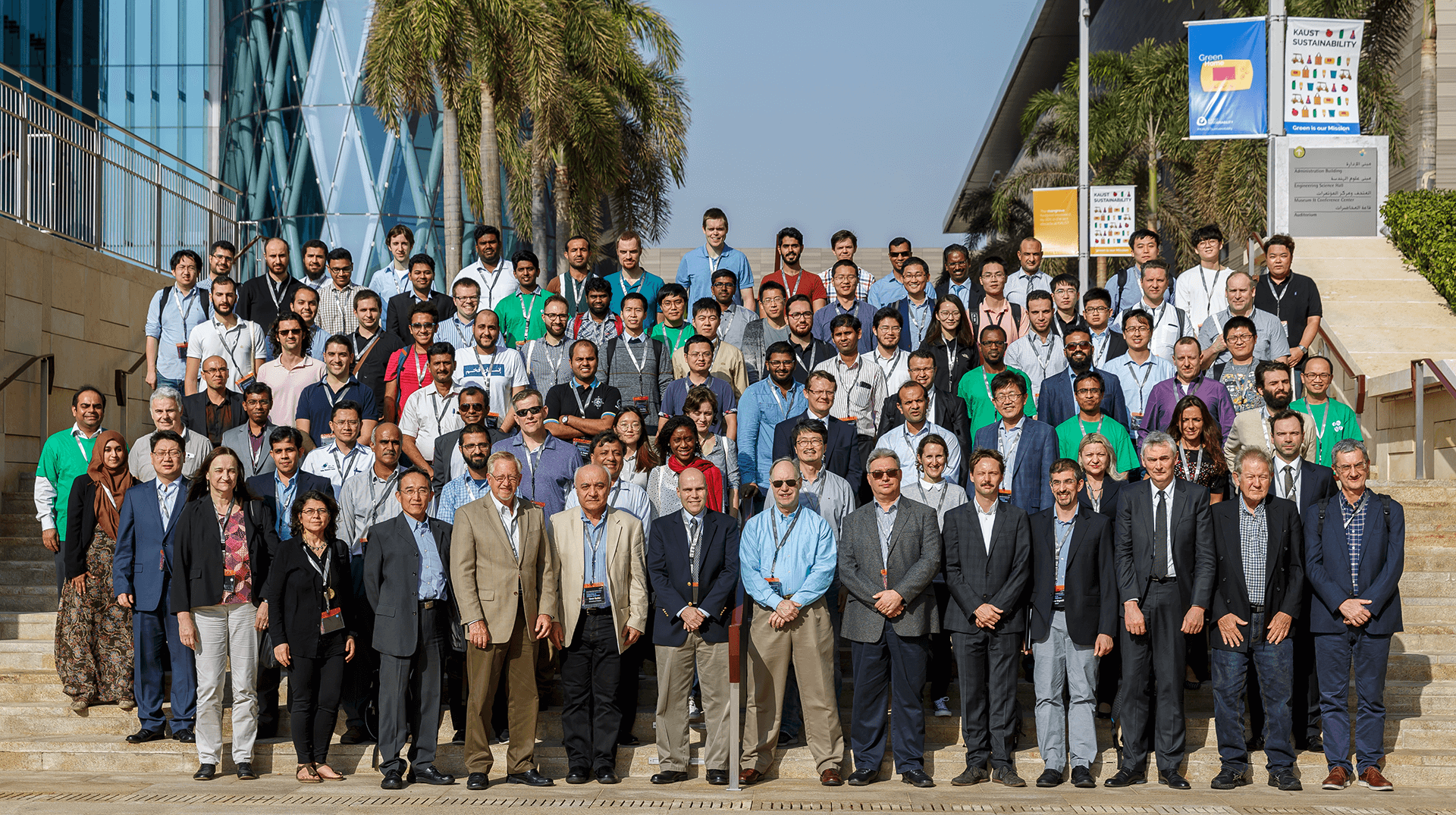
Combustion researchers gathered on campus for the recent KAUST Combustion in Extreme Conditions research conference from March 5 to 8. Photo by Asharaf K. AbdulRahman.
By David Murphy, KAUST News
Experts in the field of combustion research gathered on campus for the recent KAUST Combustion in Extreme Conditions research conference. The event, which was held from March 5 to 8 and was hosted by the Clean Combustion Research Center (CCRC), focused on the area of combustion under extreme conditions in relation to modern combustion engines.
Throughout the conference's duration, attendees and their presentations focused on three core topics: high-pressure/high-Reynolds number combustion, advanced diagnostics, high-fidelity and high-performance computations for combustion simulation.
Leading combustion experts from academia, national laboratories and industry discussed how CCRC researchers and their international peers could promote global collaborations and move their research forward towards clean and efficient combustion systems. Attendees also examined the challenges and opportunities of coming research efforts, alternative fuels and the continued development of new and cutting-edge techniques aimed at reducing carbon emissions worldwide.
Fostering collaboration and impact
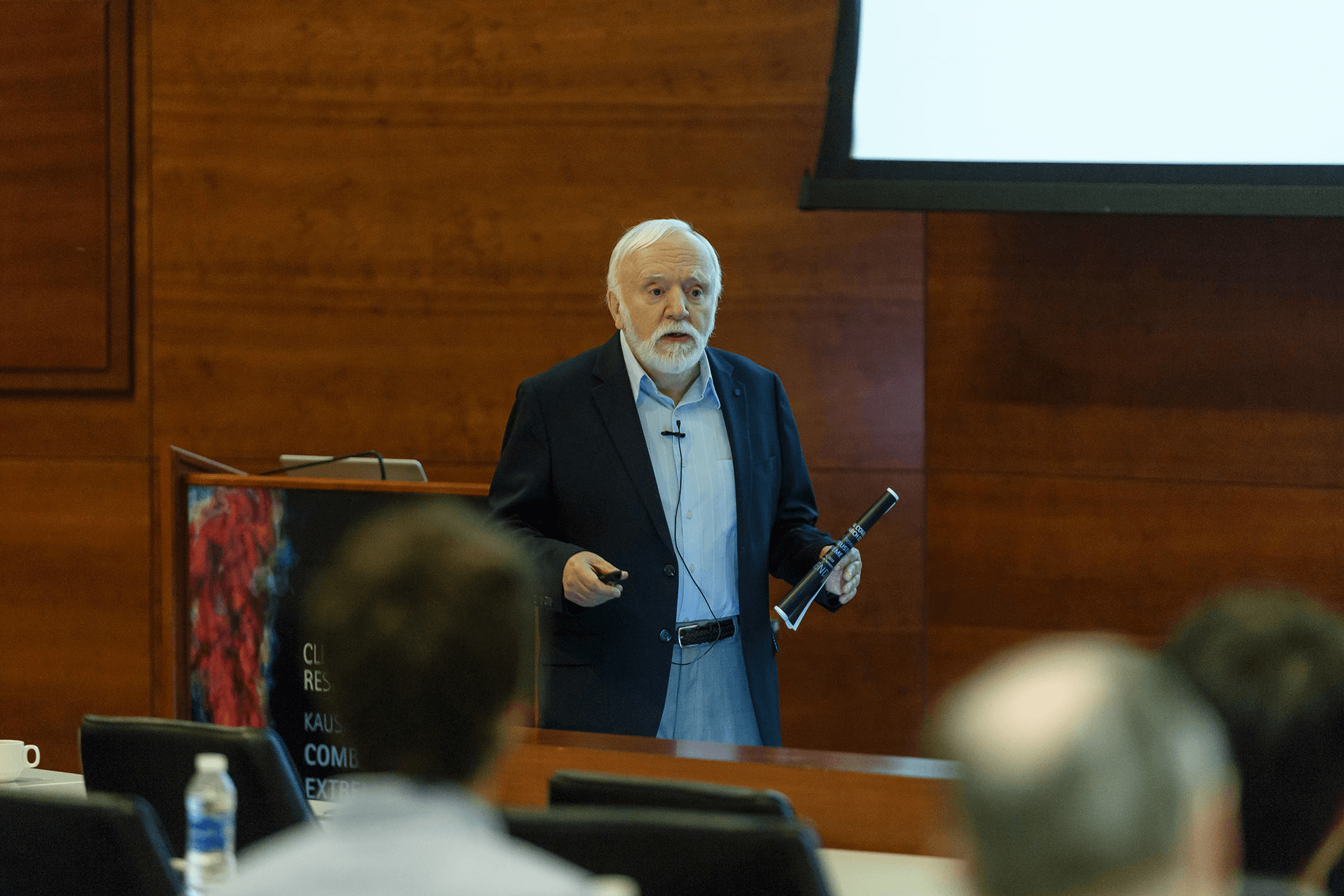
Jean Fréchet, KAUST distinguished professor of chemical science and senior vice president for Research, Innovation and Economic Development, speaks during the recent on campus Combustion in Extreme Conditions research conference. Photo by Asharaf K. AbdulRahman
"We are always happy to see new faces at these conferences because we want to show off KAUST. KAUST is a special university, and what we have here in KAUST is spreading throughout the Kingdom. The key ingredient for our University to be successful, in my opinion, is our independence. We attract quality researchers and we want to continue bringing them here," Fréchet said.
In his welcome address, Dr. Kevin Cullen, the new KAUST vice president for Innovation and Economic Development, spoke of the continued need to marry scientific research with industry goals and needs.
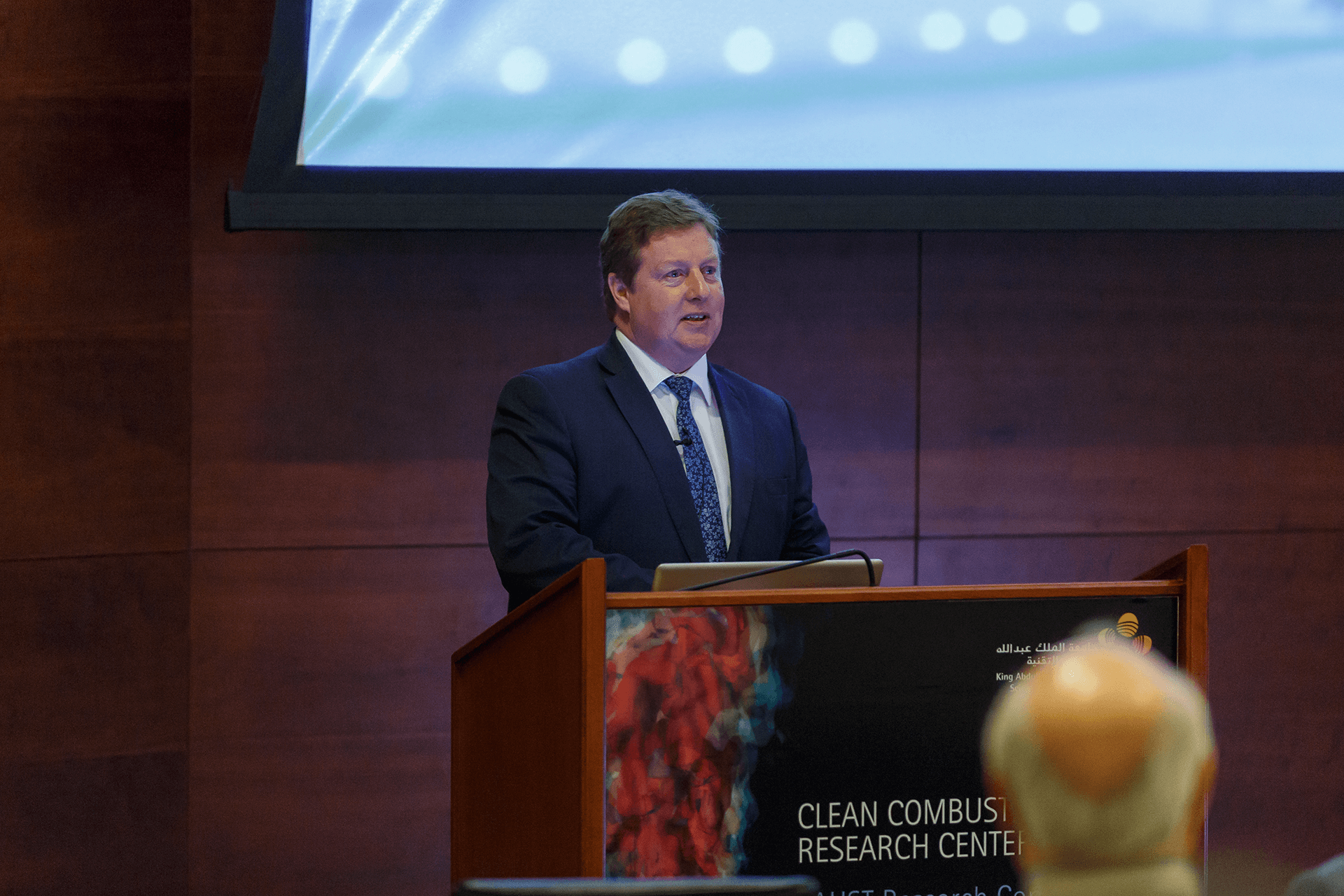
Dr. Kevin Cullen, the new KAUST vice president for Innovation and Economic Development, gives his remarks during the recent on campus Combustion in Extreme Conditions research conference. Photo by Asharaf K. AbdulRahman
"Engagement happens through many channels, and engaging partners is a necessary precursor to creating impact," he added.
New efficient combustion technologies
In the opening keynote address, James Driscoll, president of the Combustion Institute at the University of Michigan, spoke on how it is necessary to continue embracing and developing new efficient combustion technologies.
"I feel KAUST is now the global center of combustion research. KAUST is an amazing place and I am happy to finally get the chance to visit it," Driscoll said.
"The world is beginning to realize that we need to expand our research. I think we need new voices in the field. The next generation needs to step up—the idea is to go beyond what people have done before. We should get away from methane and nitrogen in our research," he emphasized.
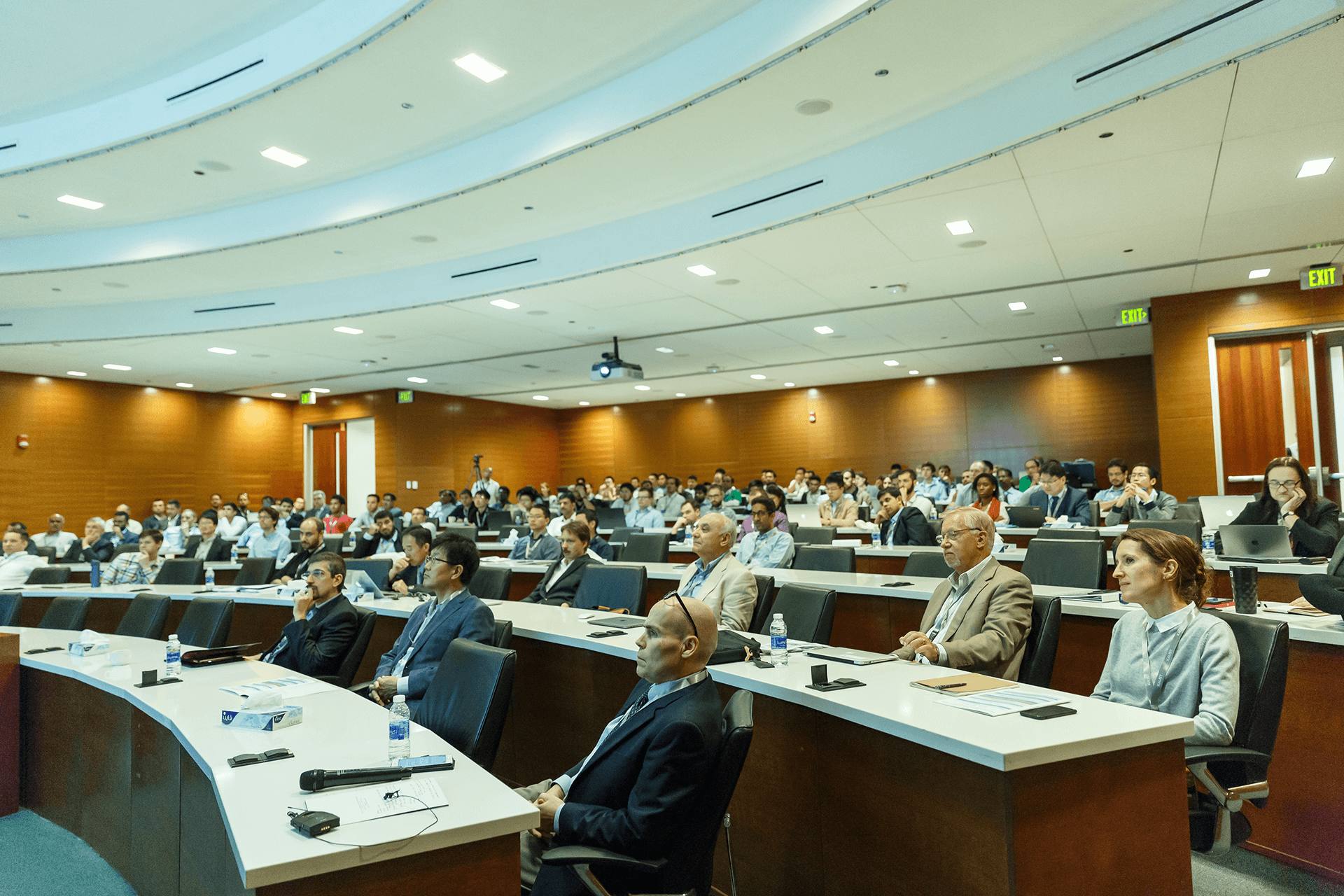
An audience of KAUST faculty members, students and postdoctoral fellows and visiting researchers listens to a presentation during the recent on campus Combustion in Extreme Conditions research conference. Photo by Asharaf K. AbdulRahman
In a keynote entitled "DNS of High-Karlovitz Number Turbulent Premixed Flames under Engine-Relevant Conditions," Alexei Poludnenko, associate professor at the Department of Aerospace Engineering, Texas A&M University, detailed recent advances in high-performance computing and large-scale direct numerical simulations (DNS) have allowed detailed exploration of flow dynamics.
"Turbulence can alter chemistry," Poludnenko commented. "At high turbulence intensities, the burning rate is controlled by the extinction properties of the fuel. In turbulence chemistry, there are many different trends. It is now a question of how we model them; kinetic energy can be translated up-scale over a broad range of scales and result in large-scale motions."
The future of combustion
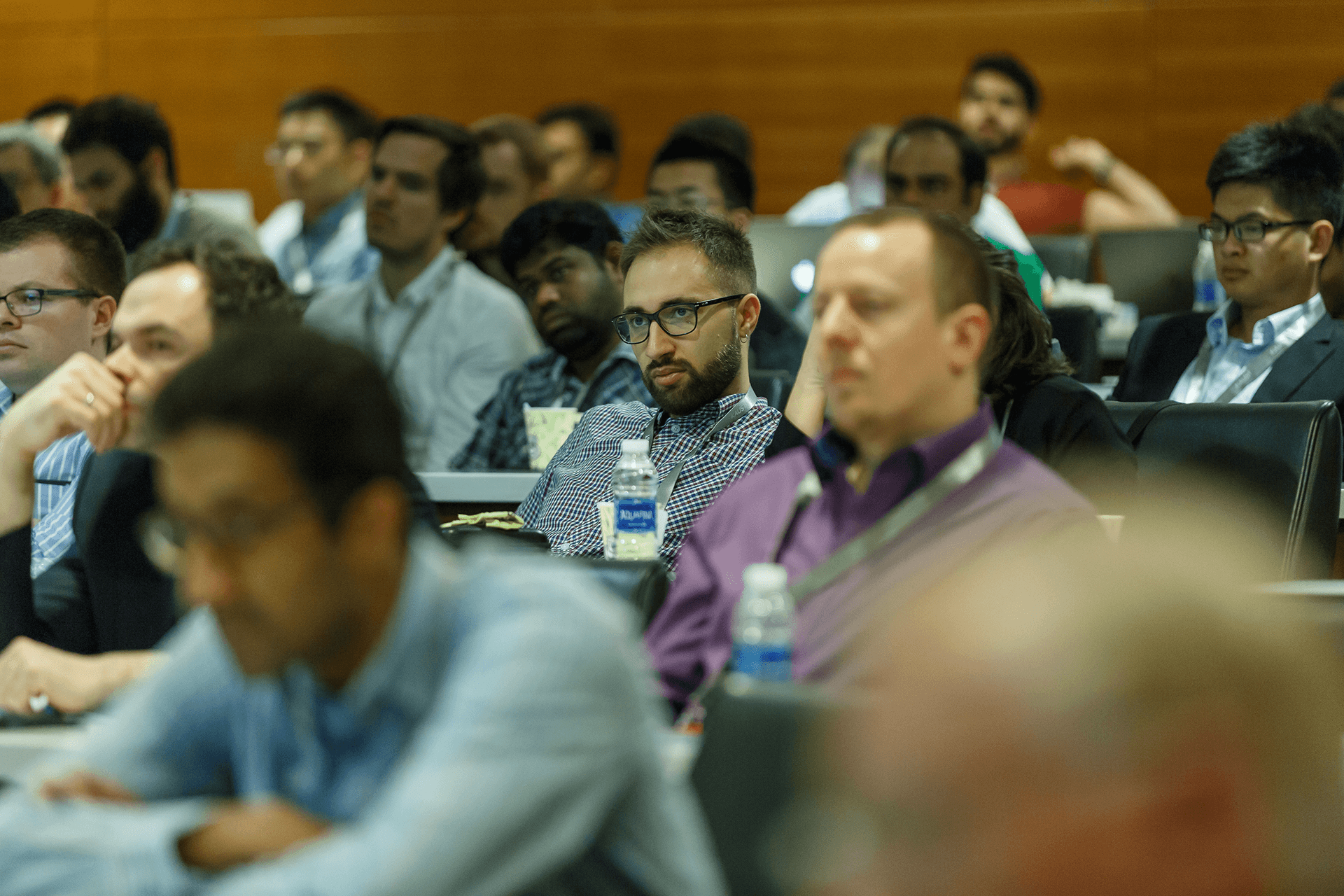
KAUST faculty members, students and postdoctoral fellows and visiting researchers listen to a talk during the recent on campus Combustion in Extreme Conditions research conference. Photo by Asharaf K. AbdulRahman
Tidjani Niass, a research science consultant at Saudi Aramco, opened proceedings on the conference's final day. Niass, who is also a senior adviser to the Saudi Ministry of Energy, Industry and Mineral Resources, outlined his and Aramco's research into sustainable combustion, including energy efficiency, renewable energies and CO2 capture and conversion.
"I think KAUST is focusing on the right problems in combustion research. I am very impressed with the facilities and technology here at KAUST. At Aramco, we want to encourage increased engagement by the global research community, industry and research partners. We need to catapult combustion into the future—our objective is to enable near-zero CO2 emissions from power plants and carbon-intensive industries," Niass said.
"We need to build on Big Data—on the technology that is happening right now. One of the scientific challenges we face in the combustion field is to take the trial and error out of high-intensity, pressurized combustor design. We need to continue to develop carbon capture, storage and utilization technologies (CCUS). We need our research to move towards kinetic and hydrodynamic models validated against experimental data," he noted.
Kinetic models and pressing issues
Mani Sarathy, associate professor of chemical engineering in the University's Physical Science and Engineering Division and associate director of the CCRC, described his team's research developing detailed chemical kinetic models.
"I am interested in understanding how combustion performs under extreme conditions. A strong focus of my team is to create models to try and predict the combustion process. We develop kinetic models that aid in developing advanced combustion technologies. We use chemical kinetic models to determine surrogate mixture combustion properties," Sarathy said.
During his presentation entitled "Combustion Chemistry at Extreme Conditions," Sarathy noted, "Formulating surrogates for real fuels can be a tedious and arduous process. We use neural networks and deep learning algorithms to predict specific combustion property, like ignition delay time, etc."
"At our lab, we try to give you an understanding of extreme fuels—real fuels are extremely complex. We have various ways to deal with this complexity, but eventually it brings us back to fundamentally sound simplified approaches. We can make kinetic models that are less 'stiff' and more complex," he added.
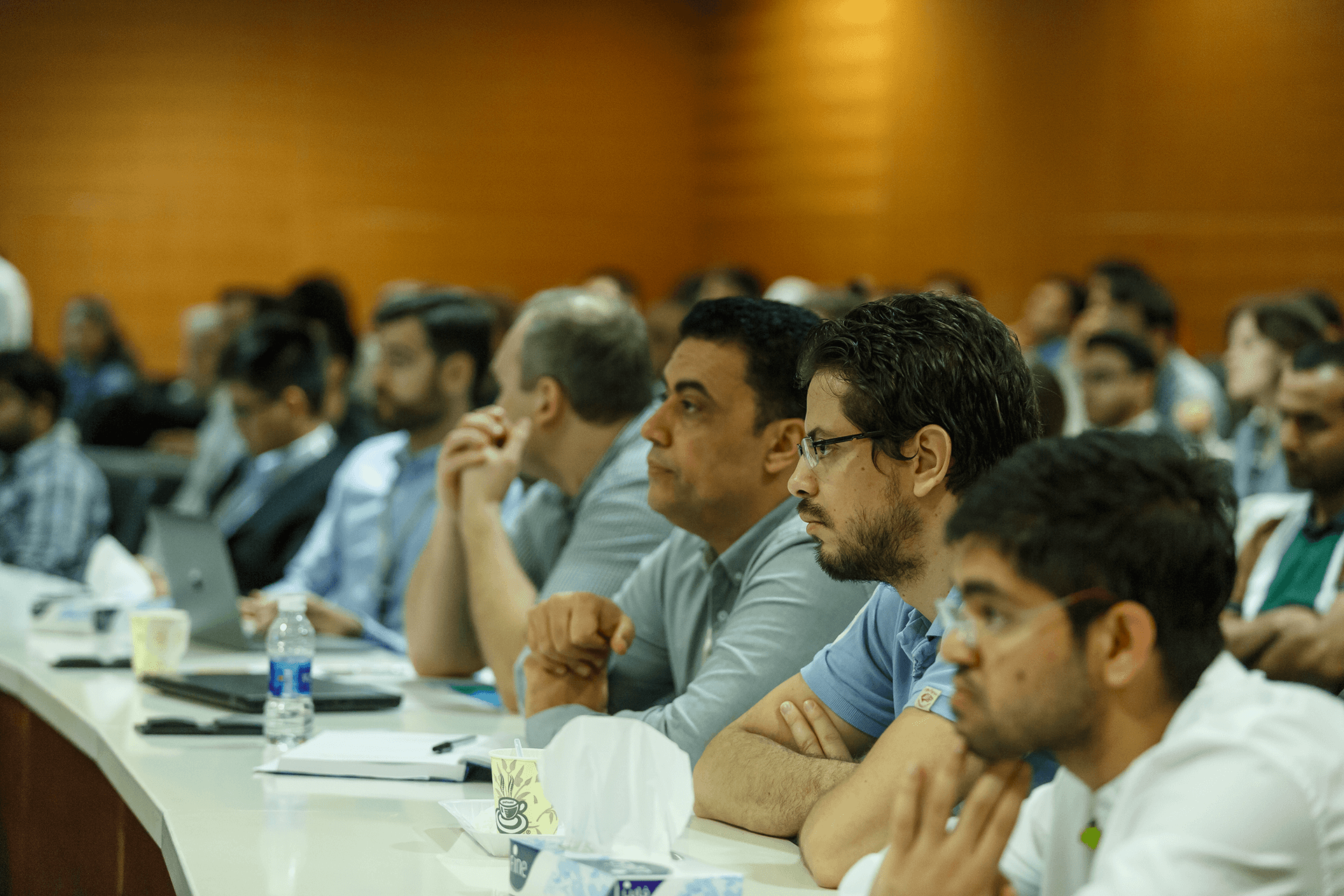
An audience of KAUST faculty members, students and postdoctoral fellows and visiting researchers listens to a presentation during the recent on campus Combustion in Extreme Conditions research conference. Photo by Asharaf K. AbdulRahman
"Car emission regulations are getting tighter and tighter. The cost of compliance for car companies increases globally with more stringent regulation. Climate, health and energy concerns are among the most pressing issues in the transport sector," Badra said.
Final thoughts
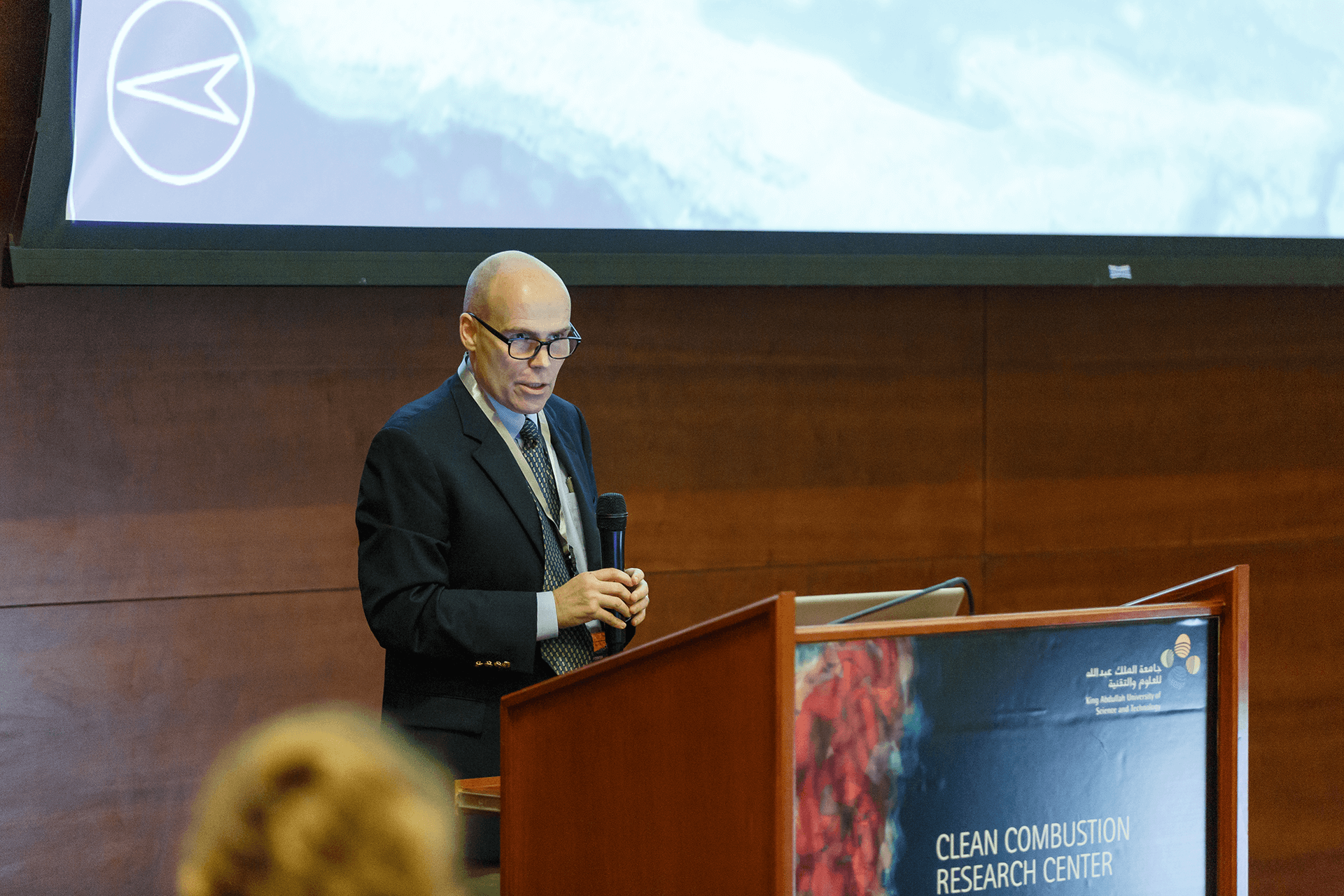
William Roberts, director of the University's Clean Combustion Research Center, closes the center's Combustion in Extreme Conditions conference on March 8, thanking attendees for taking part. Photo by Asharaf K. AbdulRahman
"I'll hope you'll all agree that it's been a stimulating conference. I'd like to thank you all for your participation in the event, and especially those who have traveled from a great distance to be here," Roberts said.
"I'd also like to thank all the assistants and volunteers—I hope the last three days have simulated some thought as to how we may work together in the future. Thank you for being here and helping to make this a special event," he concluded.

